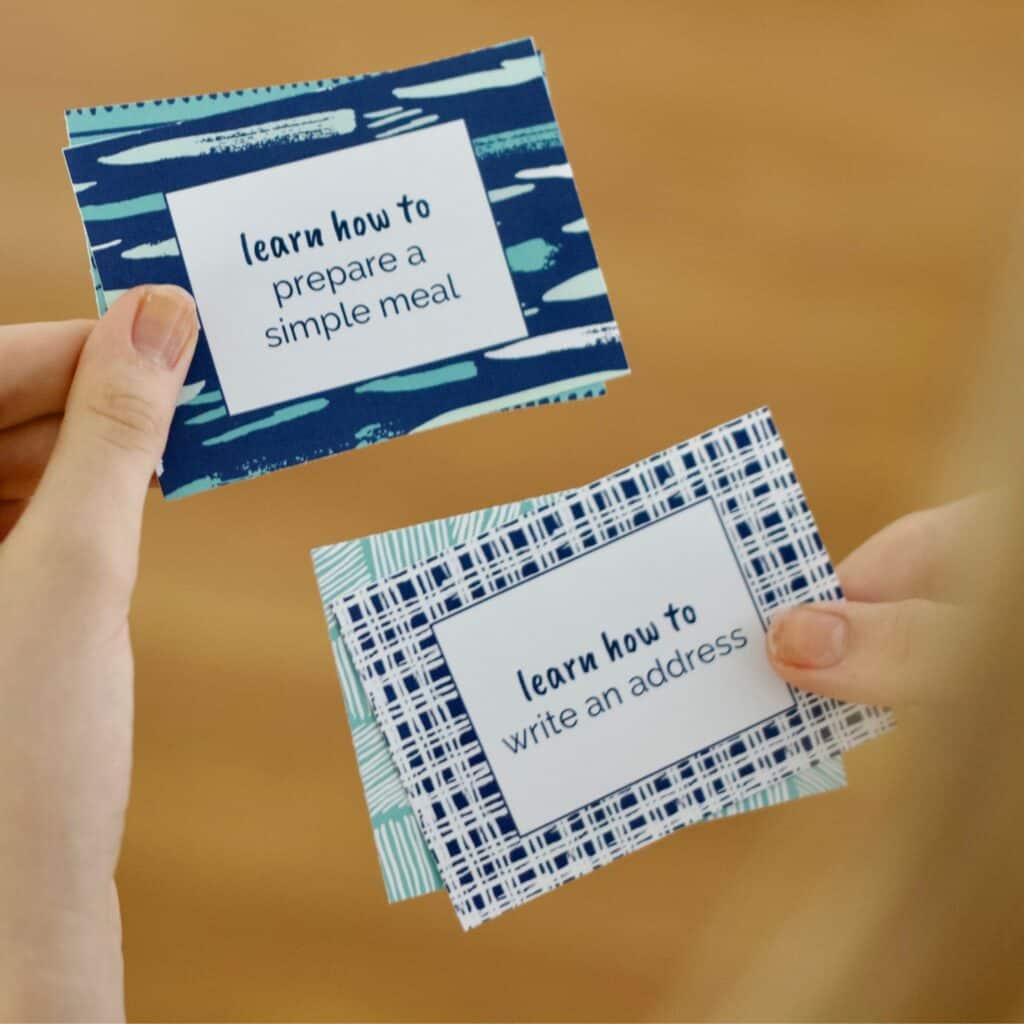Why Do Kids Lie? (And What You Should Do When it Happens)
Why do kids lie? Nearly all children lie at some point – it’s a natural, if seemingly unfortunate, part of growing up. Here are a few pointers on what to do when your children lie so they learn that lying isn’t good.

“Mom, I’m ready for school, can I watch some TV?” my daughter asks.
I come back with my daily response to this question: “Have you brushed your teeth and hair?”
“Yes,” she replies, looking me straight in the eye, barely blinking.
“Really?” I probe, following a quick glance of her disheveled hair.
After years of this back-and-forth morning dialogue, I know better. Nine times out of ten she won’t have done either. But rarely – if ever – does she tell the truth.
When kids lie to your face it can feel like a punch in the gut. Not only does it feel like a break in your bond with them, but it can also make you wonder where you went wrong. How did I raise a child who will flat out lie?
The good news about kids who lie
The other day, shortly after another untrustworthy back-and-forth with my daughter about brushing teeth and hair, I stumbled upon a New York Times article titled: Is Your Child Lying? That’s a Good Thing.
Intrigued, I began reading and discovered research shows kids who lie are thought to be more intelligent, have better executive functioning skills, and a heightened ability to see the world through other people’s eyes.
Well, at least that’s something.
It made me a little less uneasy about my own predicament with my daughter but I was still left feeling empty.
I was still left with questions about how to respond to my daughter’s fibs. I wanted her to understand that lying is morally wrong, can destroy relationships, and should be avoided at all costs.
What to do when your children lie
Looking for an expert on this topic, I turned to Julia Pappas, a parent coach, and psychologist. (She also previously worked at my daughters’ school.)
Here’s what Julia Pappas told me when we spoke:
Avoid harsh punishment and condemnation
“The bottom line is that we want to teach something, not just make them feel horrible and not provide guidance,” Pappas says.
Research shows that harsh punishment – such as condemning kids or worse, spanking – not only doesn’t deter lying but often causes kids to lie even more.
“Lying happens because children are trying to get something that seems unattainable otherwise,” Pappas says. “If we aren’t able to show kids an alternative to their lies, they will most likely just become more creative the next time so that they won’t get caught.”
And condemning kids for their lying hurts their self-esteem. They’re also less likely to fess up to their lies if they know a critique of their character will be on the other end.
Present facts and ask questions
So if punishment doesn’t keep kids from lying, what should parents do?
In most cases, Pappas says, parents can simply discuss the situation with their kids, with an emphasis on presenting facts and asking questions. For example:
Parent: “I thought we agreed you were only going to ride your bike when you finished your homework?”
Child: “Yes, that’s what I did.”
Parent: “Hmmm…well, I found these math worksheets on the dining room table unfinished while you were outside. Can you tell me more about that?”
By stating the facts gathered in a non-threatening way, the parent has given the child little choice but to recognize they’ve been found out. If instead, the parent were to use condemnation, the child’s natural defensiveness would shut them down and make them not open to the next and most important step.
Help children problem solve
“We can keep children truthful by taking away the need to lie,” Pappas says. “Since children lie because they feel that whatever they want is otherwise unattainable, we can help them figure out if there is a way to reach their goal without lying.”
In the example above, the parent could start by asking: “What would have been a better way to have found time to ride your bike without violating my trust? How could you have let me know that you felt the need to go outside and get some exercise?”
If needed, the parent could then help the child come up with a better solution. In the case above, the parent could suggest to the child that they could have done half their homework first, ridden their bike for a few minutes, and then come inside and finished the rest.
“The child needs to experience that their needs are being met,” Pappas says. If they don’t, they’ll get sneakier – in the case of homework, perhaps rushing through their work with sloppy results.
Praise good results
When your child follows through on the agreed compromise the next time, tell them how proud you are of them for what they did – and for being honest.
On the other hand, if the child is found lying again, ask them: “What do you think will happen next time, since you didn’t live up to your half of the agreement this time?” Make it clear that your trust in them has been weakened and you may not be willing to let them be as independent the next time.
Emphasize values when no half-way solution is available
Sometimes kids tell a lie to try to get something they want that we can’t, or simply won’t, give them. When there isn’t a way to compromise, the best tactic is to talk about values, Pappas says.
For example, if later in the evening you discover your child threw away her dinner in order to get dessert, there’s really no half-way compromise – especially since you likely feel it’s important for her to eat a good, nutritious meal before having a slice of chocolate cake.
In this case, Pappas says, present the facts to your child, as before. Then include something about values, perhaps: “One of the values we have as a family is good nutrition. It’s important to me that you eat good food first before eating sweets.”
You can also ask questions to see if something else motivated your child to do what she did. Did she feel there was simply too much food on her plate that she just couldn’t finish? Trying to get to the root of the lying can help us figure out how to steer the child away from lying the next time.
Ready to teach your child life skills? These cards can help! Each card in this eighty-one deck contains a skill your child can begin practicing with you or on their own. Click here or the image below to learn more.
What to do when teens lie about serious issues
Not eating all of one’s dinner to get to dessert isn’t a life or death situation. But once kids become teenagers, the landscape changes and a lot of decisions are more critical, while equally out of parent’s control.
Pappas points out this is why it’s crucial for parents to form a solid bond with their kids – based on openness, values, and trust – before they reach their teenage years. This alone might avoid most rebellious and sneaky behavior since teens wouldn’t want to damage a relationship they value.
But when situations involving lying do arise, it’s most effective for parents to speak from a place of concern, not control. Trying to control a situation only puts up teens’ defenses and could make them want to rebel and deceive even more.
“Don’t simply say ‘you’re wrong,’” Pappas says, “that won’t lead anywhere. Have a conversation before setting limits.” Teenagers are at a point where they want more independence, and if parents try to be too controlling, their rebelliousness and risky behavior may only increase. Recognizing that many decisions teenagers make are now out of parents’ control, it’s best to broach tricky situations with as open and respectful conversations as is possible.
“We should be letting go of limits around those things that, at the end of the day, do not truly matter so that we can have space to set limits around things that do matter,” Pappas says.
One way to accomplish this is to first talk about your son’s or daughter’s choices and their consequences, rather than condemning their actions: “How do you think smoking will affect your health and ability to play soccer?” “What if Liam’s parents – or the police – found out you’d been drinking in Liam’s house?”
From there, discuss how their actions concern you, and share your own values, acknowledging that as they get older they’ll need to be making serious choices on their own that can greatly affect their future. Then restate the limits you as a family have set such no attending parties where there is alcohol and no smoking while living at home.
Confronting my daughter’s lie
Back to my daily encounter with my daughter’s tattle about being fully dressed and ready for school before watching a little TV.
This question still comes up often in the morning and there are still times when her answer is “yes” when it should be “no”.
But unlike before, I now know what to do – and what not to do.
I know that simply talking about lying and why it’s wrong may be a clear statement of the values I want us to share. But it probably won’t deter her from fibbing.
And while I’ve been tempted to make her feel ashamed for lying, it’s good to know that that strategy wouldn’t be very effective either.
On most mornings I look for ways to use Pappas’ advice, like saying “You’ve been downstairs all morning, how did you have the time to brush your teeth and hair?’ or ask: “How could you get your hair and teeth done in enough time to allow you to watch a little TV, too?”
The lies aren’t entirely gone but the truth is coming out more and more – as is the fully brushed hair.
See related:
How to Raise Responsible Kids, Not Just Obedient Ones
Why Every Kid Should Talk Back to Their Parents
10 Life Lessons Kids Need to Experience Before They Leave Home
The Difference Between Praise and Encouragement and Why it Matters
What to do next…
1. Subscribe to Self-Sufficient Kids’ email list.
Like what you read here and want to learn more? Every Thursday I’ll send you one parenting tip about raising self-sufficient kids and creating the peaceful relationship you yearn to have with your child. Click here to sign up.
2. Take one of my quizzes!
Find out if you’re raising a self-sufficient kid (click here) or if you’re doing too much for your kids (click here). At the end of each quiz, you’ll be asked to provide your email address to see the results.
3. Get your kids started on chores.
Learn how to get your child started on chores (& keep them motivated + avoid power struggles) by enrolling in my Get Your Kids Successfully Started on Chores course. Click here to learn more and sign up.

About Kerry Flatley
Hi! I’m Kerry, the mother of two girls and a certified parent educator. I believe it is possible for parents to have a supportive, loving, and warm relationship with their kids while raising them to be independent and ultimately self-sufficient. Over the years, I’ve read numerous books and articles that support this belief and I’ve put these ideas into practice with my own kids. Read more about me and Self-Sufficient Kids here.



